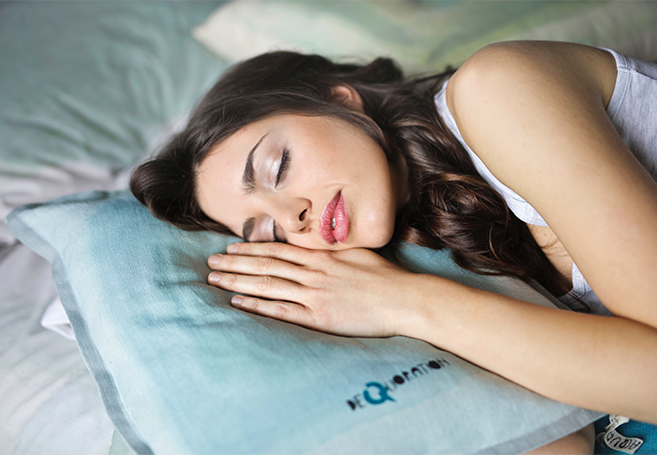It is easy to overlook the importance of sleep when our lives get too busy. Other than getting a good rest to recover after a long day of work, most people underestimate the host of other benefits that come with a good sleep. Experts advise getting a minimum of 6 hours of sleep, but 8 would be best. Of course sleep has the potential to boost your energy levels and help you maintain a healthy lifestyle, but it’s also a lifesaver for those who battle anxiety issues. Here are some of the ways of getting good sleep can help reduce your anxiety.
Improved Concentration and Productivity
Anxiety has a lot to do with unproductivity or the fear of it thereof. Sometimes, the worry of whether you are meeting your goals and being as productive as you would want to be can cause anxiety. Whether you are running your own company, or are an employee, being at your very best is of the utmost importance. Therefore, if you want to refocus your brain towards concentrating on achieving goals and being productive at work, then you need a good night’s sleep every night. Ideally, sleep allows your brain and body to rest. By the time morning arrives, your body and brain are all charged up for work and other daily activities. With your nerves calmed, you can now take on your day with a greatly reduced risk of anxiety. To boost your chances you might want to consider investing in th best innerspring hybrid mattress on the market.
Enhanced Athletic Performance
Physical exercise can go a long way in easing you out of anxiety. During exercise, your body is more awake, and your heart more active. This translates to an improved supply of blood and oxygen to different parts of your body, including your brain. In studies, cases of anxiety are lower for people who love to exercise. To that aim, you must also appreciate a place for good sleep to enhance your athletic performance. Without adequate sleep, you expose your body to functional limitations, which might translate to poor physical exercise. Be sure to get sufficient sleep every night and watch how quickly your body adapts to physical exercise.
Overcoming insomnia
Insomnia is a common sleep disorder that sabotages your quality of sleep. Studies have shown that consistent poor sleep can train your brain towards a state of insomnia; so much so that it becomes a habit to skip sleeping altogether. The problem with this is that insomnia itself is a root for anxiety in most people. To avoid and overcome insomnia, practice good sleep hygiene by turning off all lights, buy a comfortable mattress, and keep your phone or other distractions away from your sleeping area. These simple changes can go a long way to curing insomnia and anxiety.
Sleep Affects Emotions and Social Interactions
Do you ever notice that you are grumpier when you have missed sleeping? The lack of sleep goes a long way in affecting moods and emotions. People who do not enjoy good quality sleep are more likely to have a hard time interacting with other people. Usually, with poor sleep patterns, you are more likely to miss out on non-verbal cues during conversations with others. Failing to recognize expressions of anger and happiness can make it difficult for you to relate with others and make meaningful relationships. This could be the root cause of social anxiety. However, you would be surprised at how much a sound night’s sleep can transform your social life. Once you can relax your brain and body, you can say goodbye to social anxiety and watch your relationships thrive.
Preventing depression
Anxiety and depression are largely intertwined. Most people that succumb to depression start with anxiety attacks that go on for too long. You can avoid some anxiety triggers by taking a break from everything and enjoying restful sleep. Sleeping eases out the body and brain. When you are asleep, it is difficult for negative thoughts, stressing stimuli and even suicidal thoughts to cross your mind.
Conclusion
Good sleep can go a long way in ensuring that you are leading a healthy lifestyle. Back pain, allergies and an uncomfortable mattress are just some of the many other factors that can affect your sleep. Another unknown factor that can affect sleep is the many chemicals emitted from the mattress foam and that’s why it’s important to choose the right mattress.The Saatva mattress is a good example because it contains significantly less chemicals. It has no allergens in the memory foam or on the cotton cover, making it a great choice, especially for people prone to allergies.
Photo by Bruce Mars


